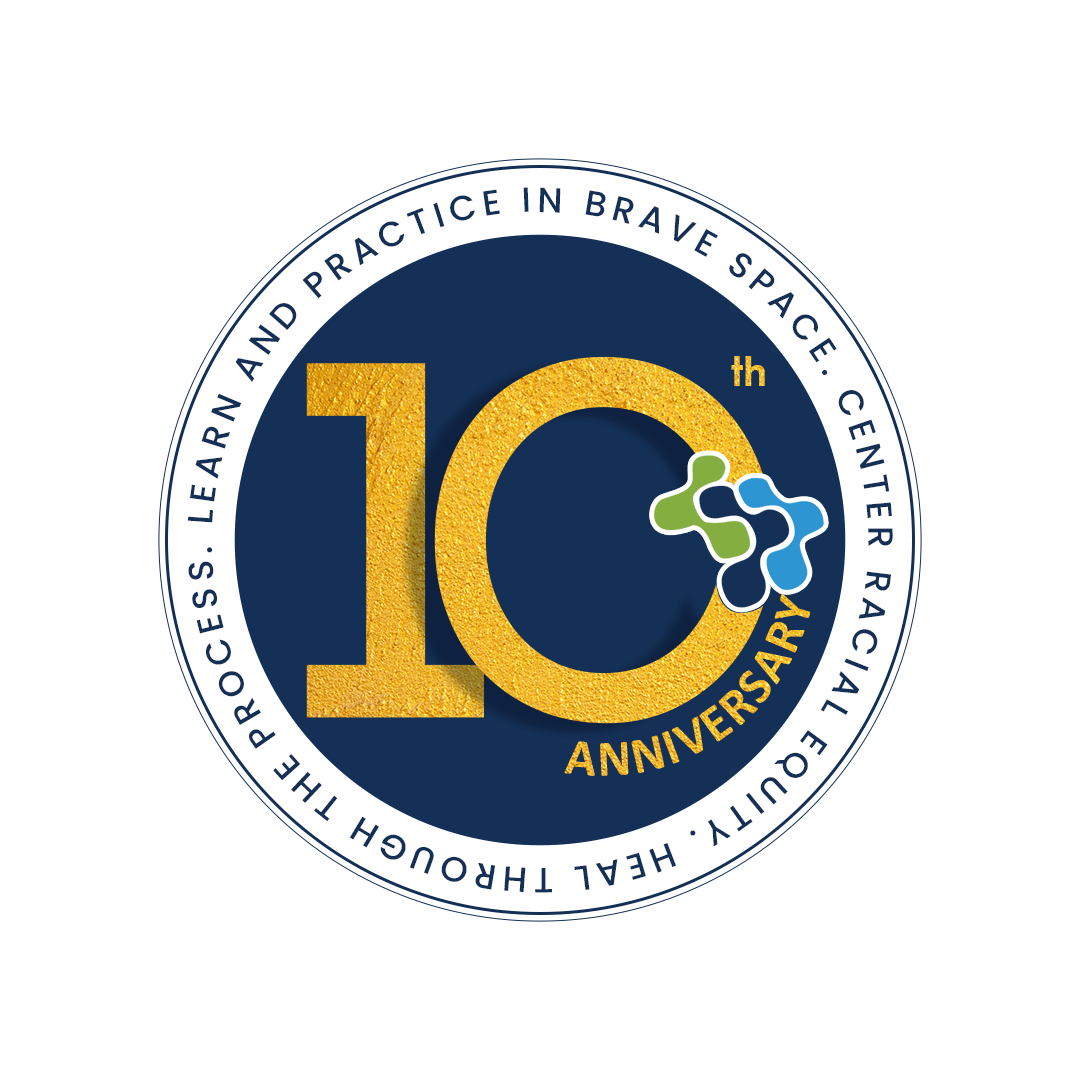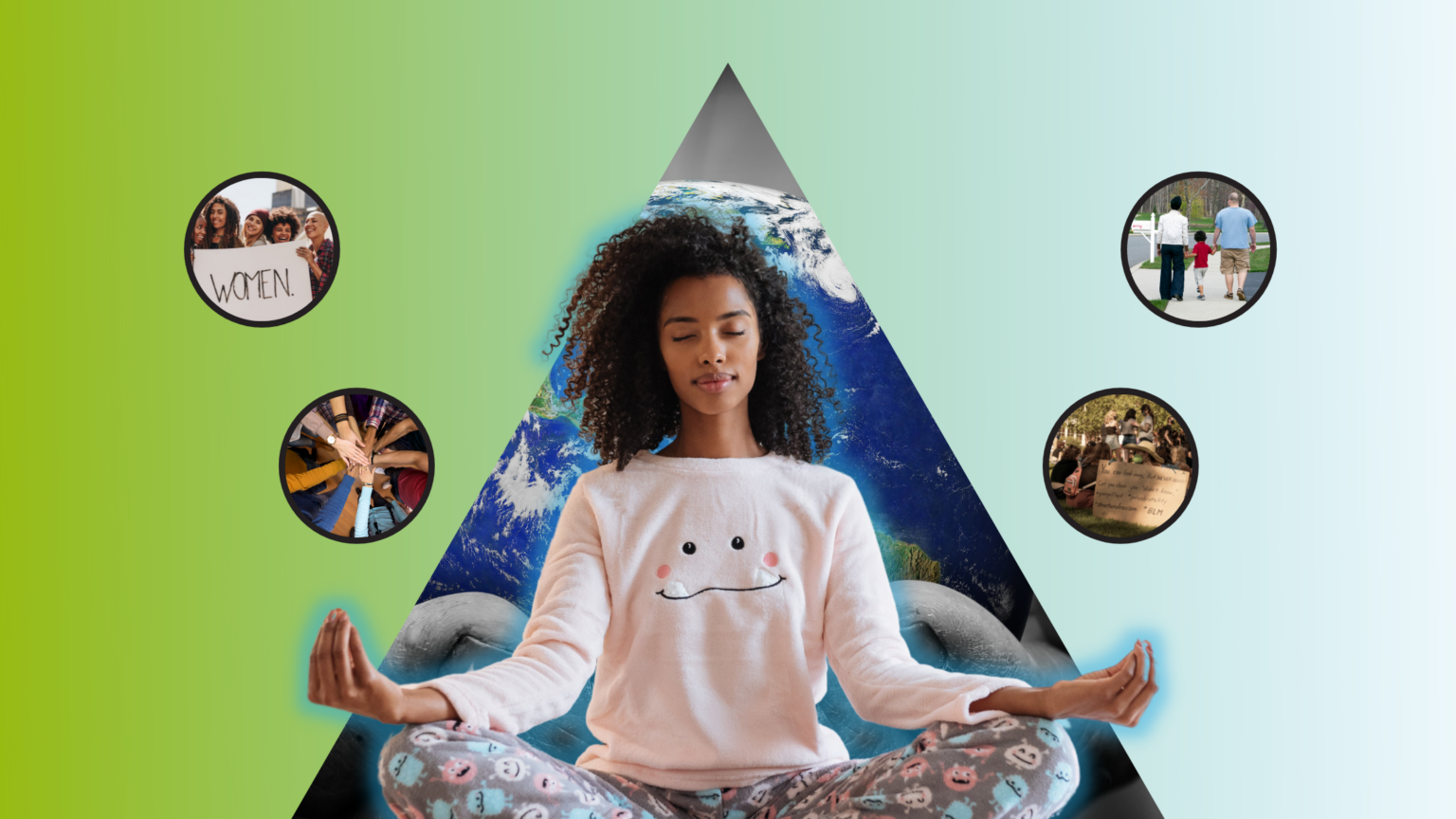centering on a cultural norm of self-care and community care
A culture of self-care and community care is when people care about each other’s physical, mental, emotional, and spiritual well-being and support time boundaries.
The culture is considerate of time zone difficulties, parental needs, personal health issues, etc.
Work plans include 20% of unscheduled time to enable space for the inevitable unpredictable tasks that emerge.
Imagine communities where outcomes are not predicted based upon the color of their skin. This can be a reality through hard work and commitment. Our racial equity and justice centered design and implementation service helps organizations solve problems by combining history, research, policy, community culture and healing and emotional self-care practices to define a racial equity centered strategy.
Structural and institutional racism has created generational traumatic experiences-so much so that patterns of poor health outcomes exist for Black communities. Our foundational belief is that people and communities can heal through emotional self-care and community care practices.
We center any service delivery on and help communities explore healing and emotional self-care practices.
The Psychology of Radical Healing Collective recently introduced a psychological framework of radical healing from racial trauma—while acknowledging the systemic nature of oppression, POCI can engage in radical healing through self-knowledge, critical consciousness, collectivism, strength, resistance, and hope.
The key feature of radical healing is being able to exist in both spaces of resisting oppression while moving toward freedom and wellness. In order to envision racial justice, we must cultivate hope alongside fighting against oppression. One way of cultivating hope is through positive acts of self-care.
As Audre Lorde noted, “Caring for myself is not self-indulgence. It is self-preservation, and that is an act of political warfare.”
Racism and racial discrimination can negatively affect your physical and mental health
Self-Care: Recovery Plan Steps
The following Racism Recovery Plan Steps were created by the Institute for the Study and Promotion of Race and Culture All Rights Reserved.
Racial Wellness Toolbox
Describe what you are like when you are managing and responding to racism and racial trauma in a healthy manner.
Daily Maintenance of Centeredness
List connections or tools that help you maintain your centeredness in the face of racism. Such items include, but are not limited to:
- Resources on racial identity and racial trauma.
- Connect with friends who are equally or better able to engage in conversations about racial awareness.
- Engage in prayer, spiritual practices , or use of mantras.
- Engage in activism.
- Practice self-management (i.e. healthy eating, exercise, and favorite activities that help you feel centered).
Triggers and Response Plan
List items or experiences that tend to result in racial trauma symptoms (e.g. anger, isolation, sadness). After each item or experience, identify a specific centeredness response (e.g. calling a friend, writing in your journal, activism).
Early Warning Signs and Response Plan
List early warning signs that you are experiencing racial trauma (e.g. body aches, fatigue, anxiety, depression, difficulty sleeping) and related ways of coping from your Daily Maintenance of Centeredness coping skills list.
Acute Racial Trauma Response Plan
List signs that you are experiencing acute racial trauma (e.g. hypervigilance; heightened emotional experiences, such as depression, anxiety, and anger, which compromise your ability to engage in chosen activities of work, sleep, or school). Identify an action plan for each item on your list.
Crisis Planning
Ask yourself how you would know if you were experiencing a crisis due to racism (e.g. thoughts of harm to others/or self; inability to care for self and/or others; acute racial trauma symptoms that last longer than a specified duration). List a person(s) or additional resources to contact in the event you experience such a crisis.
Post Crisis Planning
List ways of reconnecting with yourself and your communities to regain centeredness in the face of racism and racial trauma.
Conclusion
Our ongoing commitment to actively think about and take action against racism, combined with a sense of urgency and deep caring, adds pressure and stress to our daily lives. The emotional impact of this work is real, therefore it is vital that we all practice “self-care” to benefit our overall health and quality of life.
Self-care, at its most basic, refers to a person’s effort to maintain their wellness and health. Initiated and maintained by each individual based on their own needs, self-care requires active engagement and conscious effort to form new, beneficial habits.
Caring for ourselves helps to bring balance, focus, and mindfulness to our lives. In turn, this helps us to better navigate the challenging social and political issues related to our anti-racist work.
The term “self-care” refers to a wide range of practices and activities we engage in to care for ourselves (most often without the consultation of a medical professional). These practices address the physical, emotional, and spiritual aspects of our lives – at the most basic level.
Some define it by the need to balance and maintain the mind, body, and spirit – or thinking, feeling, and behaving.
It is often referred to as “wellness,” a “healthy balance,” “resilience,” or simply, mental health. We engage in self-care to balance our lives and to better our health, with the acknowledgment that our mind, body, and spirit are interconnected.
Equity work at its core is about humanity and relationships. Relationships take emotional investment and at times, emotional and intellectual labor. And while caring for others can be incredibly fulfilling, the labor and commitment required can result in burnout.
Therefore it is important to recognize the importance and benefits of self-care.
People who practice self-care benefit themselves and society by decreasing stress which in turn lowers barriers of communication. By being mindful, looking inward and recognizing any negativity we may have internalized, we can develop compassion and patience for ourselves and others. Being mindful allows us to work toward a more equitable society effectively.


